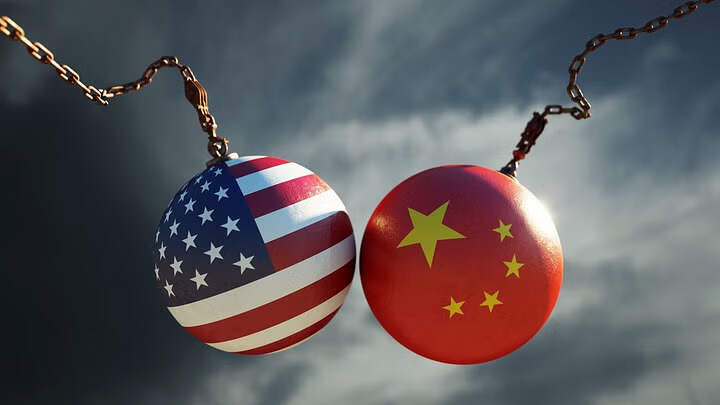Email format error
Email cannot be empty
Email already exists
6-20 characters(letters plus numbers only)
The password is inconsistent
Email format error
Email cannot be empty
Email does not exist
6-20 characters(letters plus numbers only)
The password is inconsistent

Market Information
Focus on market dynamics, grasp the pulse of the trend

Navigating the US-China Trade War: How African Clothing Businesses Can Thrive with Wholesale Quality Suppliers
Navigating the US-China Trade War: How African Clothing Businesses Can Thrive with Wholesale Quality Suppliers
The Perfect Storm: Global Trade Shifts & African Opportunities
The escalating US-China trade war has created shockwaves across global supply chains, with American agricultural exporters already declaring a "full-blown crisis" as China cancels orders for pork, lumber, and other key commodities. While politicians debate tariffs, smart businesses are looking to emerging markets - and Africa's clothing industry stands poised to benefit from this historic realignment.

Why the Trade War Matters for African Fashion
As Chinese manufacturers face 25% tariffs on $200 billion worth of goods entering the United States, global buyers are:
- Diversifying supply chains away from China-centric models
- Seeking tariff-free alternatives to protect profit margins
- Prioritizing quality consistency amid market uncertainties
This creates unprecedented opportunities for African clothing manufacturers who can position themselves as reliable wholesale suppliers. The continent's textile exports grew by 5.3% annually even during the pandemic, proving its resilience.
Partnering with Quality Wholesale Suppliers: 5 Critical Factors
To capitalize on trade war disruptions, businesses must carefully select wholesale partners who can deliver:
1. Tariff-Smart Manufacturing Bases
Leading African clothing exporters:
- Ethiopia: Duty-free access to US/EU markets
- Mauritius: Advanced vertical manufacturing
- Lesotho: Specialized denim production
2. Agile Production Capacity
Top suppliers combine traditional craftsmanship with modern capabilities:
- Minimum Order Quantities (MOQs) as low as 500 units
- 3-5 week turnaround times
- Digital quality control systems
3. Sustainable & Ethical Operations
68% of global buyers now require:
- Organic cotton certification
- Fair Trade compliance
- Water recycling systems
4. Customs & Logistics Expertise
Reliable suppliers handle:
- EXW/FOB/CIF pricing options
- HS code classification
- AFTA certificate issuance
5. Design Collaboration Capabilities
Leading African manufacturers offer:
- In-house design teams
- Rapid prototyping services
- Seasonal trend forecasting
Case Study: How Ghanaian Suppliers Captured US Market Share
When Chinese-made African print dresses faced 15% US tariffs in 2022, Accra-based ABC Textiles:
- Partnered with Missouri wholesaler on AGOA-compliant production
- Reduced landed costs by 22% through duty exemptions
- Grew exports from $800k to $4.2m in 18 months
The Road Ahead: Strategies for Success
To thrive in the new trade environment:
For Buyers:
- Audit 3-5 African suppliers annually
- Allocate 15-20% of sourcing budgets to Africa
- Attend trade shows like Origin Africa
For Suppliers:
- Invest in digital showrooms
- Obtain ISO 9001 certification
- Develop hybrid China-Africa production models
Conclusion: Seizing the Moment
As the US-China trade war reshapes global commerce, Africa's clothing industry stands at an inflection point. By partnering with quality-focused wholesale suppliers who understand both continental craftsmanship and international market needs, businesses can turn trade turbulence into lasting competitive advantage. The crisis in traditional supply chains isn't coming - it's here. The question is: Will you adapt or get left behind?
The new era of global trade demands new thinking. Let African quality be your anchor in the storm.

